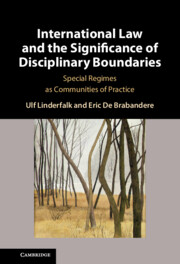This article focuses international legal scholars’ attention on consular relations, consular work, and related international law. It does so for two main reasons. First, as scholars of diplomatic history and international relations have observed, consular work is of growing significance in global affairs. Second, there are largely unrealized possibilities for thinking about international law, and grappling afresh with its dilemmas, through a consular optic. International law conducted through consular offices and officials advances views of the international legal plane, its key actors, and relations among them, that are distinguishable from those advanced by diplomacy and international law as traditionally conceived. This article theorizes this distinctive logic as consular internationalism. Its argument is that consular internationalism is a richer resource for thought and practice in international law than commonly acknowledged. It is especially relevant, this article aims to show, for analyzing historical and contemporary entanglements of imperial and commercial power, grappling with the role of lay people and unofficial communities in shaping international legal order, and, potentially, supporting anti-hierarchical struggles.
